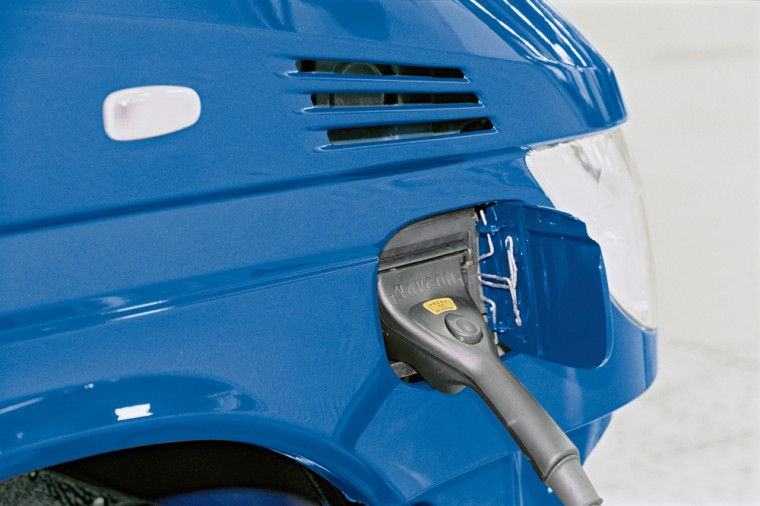Austin, Texas, on Tuesday spearheaded a nationwide partnership that will lobby carmakers to build a new green vehicle — plug-in hybrids. In return, partners are prepared to commit to buying the cars — Austin alone 600 of them.
The vehicles take gasoline-electric hybrids to another level, allowing drivers to plug them in for a few hours to charge the batteries and then drive solely on electric power for up to 60 miles.
The Plug-In Partners coalition, which brings together nearly a dozen cities and dozens of public utilities, was announced Tuesday in Washington, D.C.
Austin said it has 600 soft orders for purchases by city agencies and private partners, as well as 11,000 signatures by residents endorsing the idea. Other partners are just now working on how many orders they would place — assuming carmakers are willing to build them.
The coalition says plug-in hybrids have the potential to save money for drivers while reducing America’s reliance on foreign energy.
“Considering that half the cars on America’s roads are driven 25 miles a day or less, a plug-in with a 25-mile-range battery could eliminate gasoline use in the daily commute of millions of Americans,” the coalition says in its publicity material. “The cost of an equivalent electric gallon of gas is estimated to be less than $1.”
Joining Austin as founding partners are: Arlington, Texas; Baltimore.; Corpus Christi, Texas; Denver; Irvine, Calif.; Los Angeles; Seattle; and Wenatchee, Wash. A few more cities could join the founders by Tuesday.
Austin has been working on the concept for months. So have a few independent engineers and small companies.
DaimlerChrysler, Toyota views
Now, only DaimlerChrysler is touting plug-in hybrids as a possible option. This month it began testing the plug-in hybrid Sprinter vans for an unidentified fleet customer. The plug-in can run 20 miles on electric power, with a top speed of 75 mph.
Toyota, the leader in hybrids, hasn't ruled out plug-in technology, but like other carmakers worries about the extra cost and whether enough drivers really want the vehicles. The industry says it was the reluctance to recharge a car that led to the demise of all-electric vehicles in the 1980s and early 1990s.
Plug-in hybrids are “interesting as a concept,” said Toyota spokeswoman Cindy Knight, but “we do not feel it is proven yet,” given the extra cost and environmental impacts.
Adding enough batteries to travel 30 to 40 miles on electric power could raise the cost of a vehicle by $10,000, Knight says.
And many plug-in hybrids would be getting electricity from dirty coal-burning power plants. “It’s only clean if the electricity it comes from is similarly clean,” Knight adds.
Plug-in hybrids could benefit from research into high-capacity lithium ion batteries, but Toyota engineers feel a breakthrough there “is three years away,” Knight said, and then would require “another few years to reach commercial potential.”
Evangelizing plug-in hybrids would also send a confusing message to drivers who have finally learned that hybrids are easy to use since they are not plugged in. “They’re seamless to drive,” Knight said of hybrids.
Next steps: Get 50 cities
Plug-in proponents counter that today’s technology allows drivers to plug into a typical home outlet, not the specialized outlets of a decade ago.
As for power plants, proponents note that cleaner options for electricity are becoming available. Natural gas, which is much cleaner than coal, fires many newer power plants, and electricity from wind power costs about the same as electricity from natural gas.
The Plug-In Partners Coalition doesn’t expect to change the industry overnight. But it does hope to get the nation's 50 largest cities on board over the next 12 months.
It has some Republicans and defense hawks among its supporters, including New York Gov. George Pataki and James Woolsey, a former CIA Director and founder of the nonprofit energy group Set America Free.
Woolsey and a Pataki representative joined Austin Mayor Will Wynn for the announcement Tuesday, along with other backers such as Kateri Callahan, president of the bipartisan Alliance to Save Energy, and Alan Richardson, president of the American Public Power Association.
Coalition background is online at www.pluginpartners.org.
